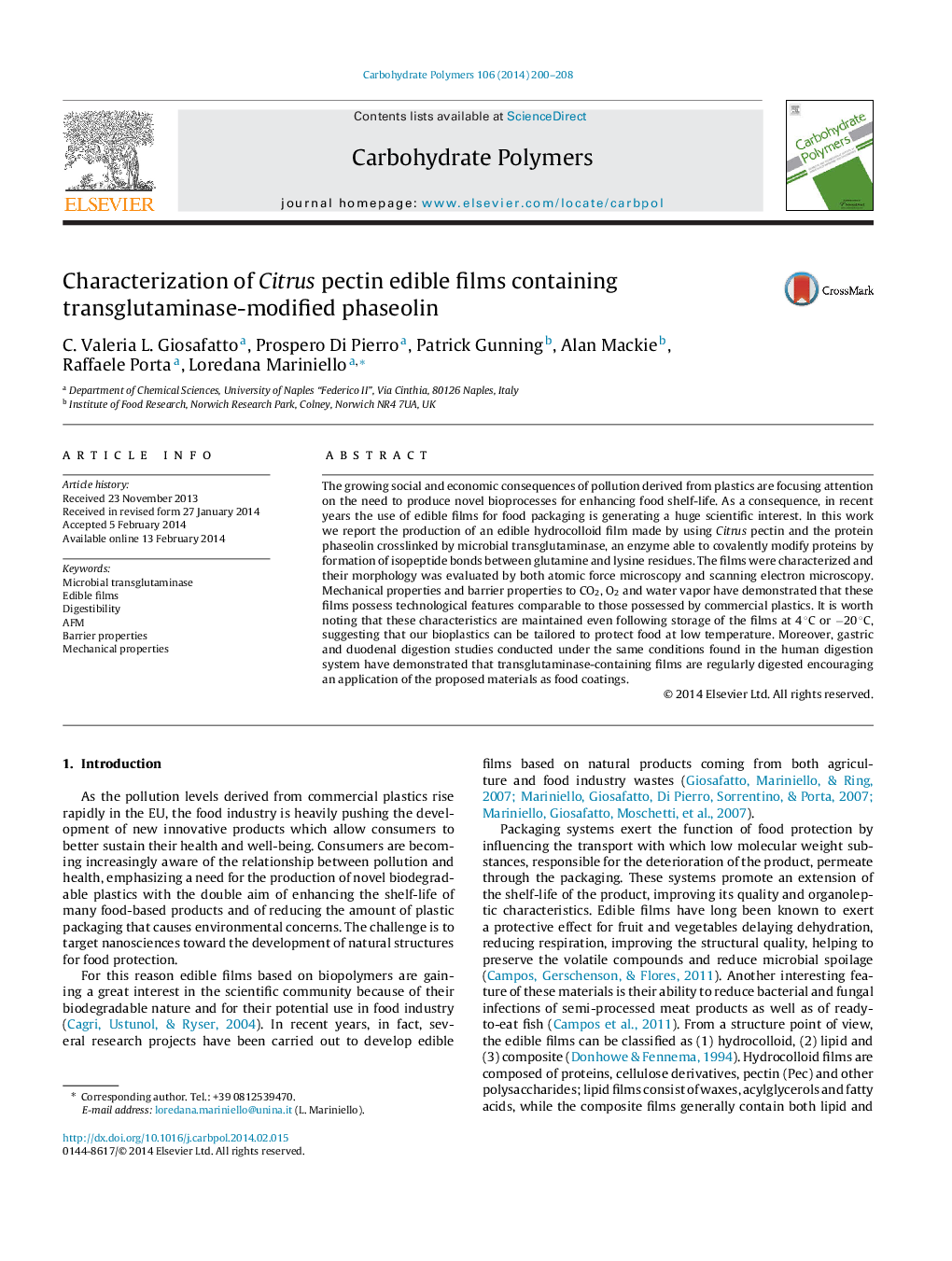| Article ID | Journal | Published Year | Pages | File Type |
|---|---|---|---|---|
| 1384062 | Carbohydrate Polymers | 2014 | 9 Pages |
•Citrus pectin edible films contain transglutaminase-modified phaseolin.•Such films show technological properties comparable to commercial plastics.•Such characteristics are maintained even after storage of the films at 4 °C or −20 °C.•Transglutaminase-containing films are easily digested by the human gut.
The growing social and economic consequences of pollution derived from plastics are focusing attention on the need to produce novel bioprocesses for enhancing food shelf-life. As a consequence, in recent years the use of edible films for food packaging is generating a huge scientific interest. In this work we report the production of an edible hydrocolloid film made by using Citrus pectin and the protein phaseolin crosslinked by microbial transglutaminase, an enzyme able to covalently modify proteins by formation of isopeptide bonds between glutamine and lysine residues. The films were characterized and their morphology was evaluated by both atomic force microscopy and scanning electron microscopy. Mechanical properties and barrier properties to CO2, O2 and water vapor have demonstrated that these films possess technological features comparable to those possessed by commercial plastics. It is worth noting that these characteristics are maintained even following storage of the films at 4 °C or −20 °C, suggesting that our bioplastics can be tailored to protect food at low temperature. Moreover, gastric and duodenal digestion studies conducted under the same conditions found in the human digestion system have demonstrated that transglutaminase-containing films are regularly digested encouraging an application of the proposed materials as food coatings.
